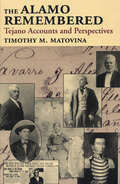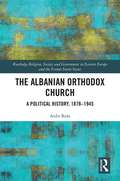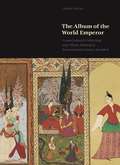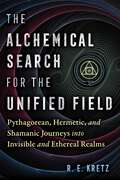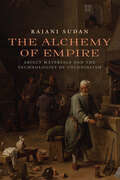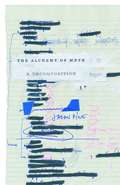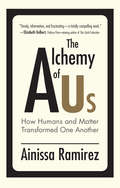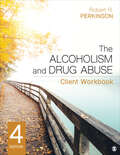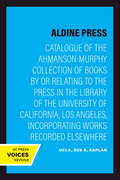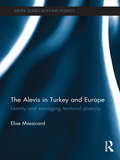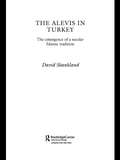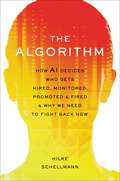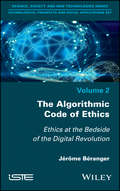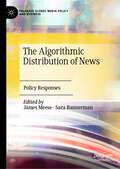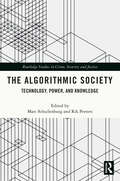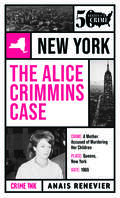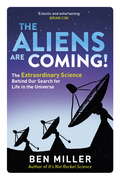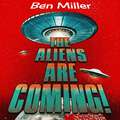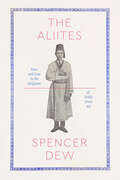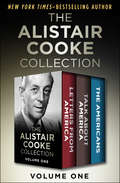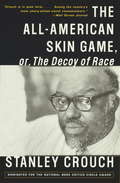- Table View
- List View
The Alamo Remembered: Tejano Accounts and Perspectives
by Timothy M. MatovinaA collection of all known Tejano accounts of the Battle of the Alamo.As Mexican soldiers fought the mostly Anglo-American colonists and volunteers at the Alamo in 1836, San Antonio’s Tejano population was caught in the crossfire, both literally and symbolically. Though their origins were in Mexico, the Tejanos had put down lasting roots in Texas and did not automatically identify with the Mexican cause. Indeed, as the accounts in this new collection demonstrate, their strongest allegiance was to their fellow San Antonians, with whom they shared a common history and a common plight as war raged in their hometown. Timothy M. Matovina here gathers all known Tejano accounts of the Battle of the Alamo. These accounts consist of first reports of the battle, including Juan N. Seguín’s funeral oration at the interment ceremony of the Alamo defenders, conversations with local Tejanos, unpublished petitions and depositions, and published accounts from newspapers and other sources. This communal response to the legendary battle deepens our understanding of the formation of Mexican American consciousness and identity.“A fascinating and much needed anthology of Tejano accounts of America's most storied battle. . . . There are no books like it in the field, despite considerable publishing on the Alamo and the Texas revolt.” —Paul Hutton, Executive Director, Western History Association“The first full-scale collection offers a rich insight into the formation of Mexican American identity in San Antonio. . . . [The book] speaks eloquently to a general audience trying to gain a more balanced perspective of the storied conflict [at the Alamo].” —Review of Texas Books“Matovina’s message is that historians who concentrate on the question of which side [Tejanos] joined or did not join miss the larger point: for the Tejanos themselves, the choice of sides during the revolt was not the overriding issue of their lives, nor was it the touchstone of their identity. What the Tejano accounts of the Alamo show, Matovina argues, is that the divisions engendered by the revolution failed to destroy what remained “an amazingly cohesive community” in which families, friends, and neighbors split apart by the war reunited in harmony in its aftermath.” —Southwestern Historical Quarterly
The Alaskans (The Making of America, Book #10)
by Lee Davis WilloughbyBryan Mathews stood over the dead moose, knowing that they must do something immediately to stay alive--in minutes they'd be frozen corpses in this raging Arctic storm. "Bryan," said Milla, "give me the knife." He watched in amazement as the slender Russian girl slit open the creature from throat to belly. "Help me," she cried. Aroused from his lethargy, Bryan plunged his hands inside the animal and began pulling out its entrails. Milla went to the abandoned dog sled and returned with lap robes. Soon they were huddled together inside their gory refuge, the slit stomach frozen shut. Their body heat began to warm them, but Milla was still not content. "Bryan," she said, teeth chattering uncontrollably, "hold me closer. Warm me." "Milla," he said, rubbing her cold cheeks, "you must stay awake." He pulled her closer, feeling the roundness of her breasts through the wool clothing. Now her cheeks were rosy and she was breathing faster. Bryan felt a new sensation rising unbidden within him ...
The Albanian Orthodox Church: A Political History, 1878–1945 (Routledge Religion, Society and Government in Eastern Europe and the Former Soviet States)
by Ardit BidoReligion in Albania has had a complicated history, with Orthodoxy, Bektashi and Sunni Islam, Catholicism coexisting throughout much of the history of this Balkan nation. This book traces the rise of the Albanian Orthodox Church from the beginnings of Albanian nationalist movements in the late nineteenth century until the end of the Second World War and the Communist takeover. It examines the struggles of the Albanian state and Church to establish the Church’s independence from foreign influence amid a complex geopolitical interplay between Albania, neighbouring Greece and its powerful Ecumenical Patriarchate; the Italian and Yugoslav interference, and the shifting international political circumstances. The book argues that Greece’s involvement in the Albanian "ecclesiastical issue" was primarily motivated by political and territorial aspirations, as Athens sought to undermine the newly established Albanian state by controlling its Orthodox Church through pro-Greek bishops appointed by the Patriarchate. With its independence finally recognized in 1937, the Albanian Orthodox Church soon faced new challenges with the Italian, and later German, occupation of the country during the Second World War: the Church’s expansion into Kosovo, the Italian effort to place the Church under papal authority, and, the ultimate threat, the imminent victory of Communist forces.
The Album of the World Emperor: Cross-Cultural Collecting and the Art of Album-Making in Seventeenth-Century Istanbul
by Emine FetvacıThe first study of album-making in the Ottoman empire during the seventeenth century, demonstrating the period’s experimentation, eclecticism, and global outlookThe Album of the World Emperor examines an extraordinary piece of art: an album of paintings, drawings, calligraphy, and European prints compiled for the Ottoman sultan Ahmed I (r. 1603–17) by his courtier Kalender Paşa (d. 1616). In this detailed study of one of the most important works of seventeenth-century Ottoman art, Emine Fetvacı uses the album to explore questions of style, iconography, foreign inspiration, and the very meaning of the visual arts in the Islamic world.The album’s thirty-two folios feature artworks that range from intricate paper cutouts to the earliest examples of Islamic genre painting, and contents as eclectic as Persian and Persian-influenced calligraphy, studies of men and women of different ethnicities and backgrounds, depictions of popular entertainment and urban life, and European prints depicting Christ on the cross that in turn served as models for apocalyptic Ottoman paintings. Through the album, Fetvacı sheds light on imperial ideals as well as relationships between court life and popular culture, and shows that the boundaries between Ottoman art and the art of Iran and Western Europe were much more porous than has been assumed. Rather than perpetuating the established Ottoman idiom of the sixteenth century, the album shows that this was a time of openness to new models, outside sources, and fresh forms of expression.Beautifully illustrated and featuring all the folios of the original seventy-page album, The Album of the World Emperor revives a neglected yet significant artwork to demonstrate the distinctive aesthetic innovations of the Ottoman court.
The Alchemical Search for the Unified Field: Pythagorean, Hermetic, and Shamanic Journeys into Invisible and Ethereal Realms
by R. E. KretzAn in-depth guide to attaining the enlightenment of the Philosopher&’s Stone• Explores the alchemical mechanics of the Philosopher&’s Stone• Illustrates the sacred geometry behind the creation of the Philosopher&’s Stone• Explains how the Philosopher&’s Stone relates to the Third Eye and how to balance its energies to attain enlightenmentInspired by alchemists of the past, R. E. Kretz explores the mechanics of the Philosophers&’ Stone, the Pythagorean transmigration of the soul, and the alchemical path for attaining enlightenment. The author details an illustrative geometric approach for the creation of the Philosophers&’ Stone using an &“oblong square&” (created by three overlapping circles with the center circle squared), the same shape described in Freemasonry as the form of a Masonic Lodge. He compares this diagram to depictions of the Stone in Mesopotamian, Egyptian, and Hindu cultures as well as floorplans for European cathedrals, showing how the sacred geometry of the oblong square elucidates man as mind, body, and spirit encapsulating a soul.Describing the relationship between the alchemical oblong square and the electrical circuit of the brain, the author details the operative process of the Philosophers&’ Stone, likening it to the servomechanism of the third eye located between the twin pillars of the cerebral hemispheres. He explores how to navigate the twin pillars of the brain to find equilibrium—the third pillar. When the energies of our third eye are in equilibrium, we resonate as a harmonic waveform generator, and he shows how this can be achieved through meditation and the synchronizing vibration of vocal mantras.Drawing on the work of Rosicrucianism, Freemasonry, Hermeticism, sacred geometry, and Native American shamanism, this book presents an allegorical quest for the Philosophers&’ Stone and a path for attaining enlightenment.
The Alchemy of Empire: Abject Materials and the Technologies of Colonialism
by Rajani SudanNamed 'Top 6' South Asia studies publications of 2016 by the British Association for South Asian StudiesThe Alchemy of Empire unravels the non-European origins of Enlightenment science. Focusing on the abject materials of empire-building, this study traces the genealogies of substances like mud, mortar, ice, and paper, as well as forms of knowledge like inoculation. Showing how East India Company employees deployed the paradigm of alchemy in order to make sense of the new worlds they confronted, Rajani Sudan argues that the Enlightenment was born largely out of Europe’s (and Britain’s) sense of insecurity and inferiority in the early modern world. Plumbing the depths of the imperial archive, Sudan uncovers the history of the British Enlightenment in the literary artifacts of the long eighteenth century, from the correspondence of the East India Company and the papers of the Royal Society to the poetry of Alexander Pope and the novels of Jane Austen.
The Alchemy of Meth: A Decomposition
by Jason PineMeth cooks practice late industrial alchemy—transforming base materials, like lithium batteries and camping fuel, into gold Meth alchemists all over the United States tap the occulted potencies of industrial chemical and big pharma products to try to cure the ills of precarious living: underemployment, insecurity, and the feeling of idleness. Meth fires up your attention and makes repetitive tasks pleasurable, whether it&’s factory work or tinkering at home. Users are awake for days and feel exuberant and invincible. In one person&’s words, they &“get more life.&” The Alchemy of Meth is a nonfiction storybook about St. Jude County, Missouri, a place in decomposition, where the toxic inheritance of deindustrialization meets the violent hope of this drug-making cottage industry. Jason Pine bases the book on fieldwork among meth cooks, recovery professionals, pastors, public defenders, narcotics agents, and pharmaceutical executives. Here, St. Jude is not reduced to its meth problem but Pine looks at meth through materials, landscapes, and institutions: the sprawling context that makes methlabs possible. The Alchemy of Meth connects DIY methlabs to big pharma&’s superlabs, illicit speed to the legalized speed sold as ADHD medication, uniquely implicating the author&’s own story in the narrative. By the end of the book, the backdrop of St. Jude becomes the foreground. It could be a story about life and work anywhere in the United States, where it seems no one is truly clean and all are complicit in the exploitation of their precious resources in exchange for a livable present—or even the hope of a future.
The Alchemy of Us: How Humans and Matter Transformed One Another (The\mit Press Ser.)
by Ainissa RamirezIn the bestselling tradition of Stuff Matters and The Disappearing Spoon: a clever and engaging look at materials, the innovations they made possible, and how these technologies changed us. In The Alchemy of Us, scientist and science writer Ainissa Ramirez examines eight inventions—clocks, steel rails, copper communication cables, photographic film, light bulbs, hard disks, scientific labware, and silicon chips—and reveals how they shaped the human experience. Ramirez tells the stories of the woman who sold time, the inventor who inspired Edison, and the hotheaded undertaker whose invention pointed the way to the computer. She describes, among other things, how our pursuit of precision in timepieces changed how we sleep; how the railroad helped commercialize Christmas; how the necessary brevity of the telegram influenced Hemingway's writing style; and how a young chemist exposed the use of Polaroid's cameras to create passbooks to track black citizens in apartheid South Africa. These fascinating and inspiring stories offer new perspectives on our relationships with technologies. Ramirez shows not only how materials were shaped by inventors but also how those materials shaped culture, chronicling each invention and its consequences—intended and unintended. Filling in the gaps left by other books about technology, Ramirez showcases little-known inventors—particularly people of color and women—who had a significant impact but whose accomplishments have been hidden by mythmaking, bias, and convention. Doing so, she shows us the power of telling inclusive stories about technology. She also shows that innovation is universal—whether it's splicing beats with two turntables and a microphone or splicing genes with two test tubes and CRISPR.
The Alcoholism and Drug Abuse Client Workbook
by Robert R. PerkinsonThe Alcoholism and Drug Abuse Patient Workbook is intended for patients on their journey to recovery in 12-step treatment programs. Designed to provide a venue for individuals to write down their thoughts and experiences as they progress through the 12 steps of treatment. As a complement Chemical Dependency Counseling, this interactive book is used and purchased by treatment centers and individual substance abuse counselors. The workbook takes the patient (client) through the first five steps of recovery and offers space for the client to work on their own personal recovery plan. It also has a chapter on preventing relapse and honesty.
The Alcoholism and Drug Abuse Client Workbook
by Robert R. PerkinsonThe Alcoholism and Drug Abuse Patient Workbook is intended for patients on their journey to recovery in 12-step treatment programs. Designed to provide a venue for individuals to write down their thoughts and experiences as they progress through the 12 steps of treatment. As a complement Chemical Dependency Counseling, this interactive book is used and purchased by treatment centers and individual substance abuse counselors. The workbook takes the patient (client) through the first five steps of recovery and offers space for the client to work on their own personal recovery plan. It also has a chapter on preventing relapse and honesty.
The Aldine Press: Catalogue of the Ahmanson-Murphy Collection of Books by or Relating to the Press in the Library of the University of California, Los Angeles, Incorporating Works Recorded Elsewhere
by University of University of California Los Angeles Sue A. KaplanThis title is part of UC Press's Voices Revived program, which commemorates University of California Press’s mission to seek out and cultivate the brightest minds and give them voice, reach, and impact. Drawing on a backlist dating to 1893, Voices Revived makes high-quality, peer-reviewed scholarship accessible once again using print-on-demand technology. This title was originally published in 2001.This title is part of UC Press's Voices Revived program, which commemorates University of California Press’s mission to seek out and cultivate the brightest minds and give them voice, reach, and impact. Drawing on a backlist dating to 1893, Voices Revived</DIV
The Alevis in Turkey and Europe: Identity and Managing Territorial Diversity (Exeter Studies in Ethno Politics)
by Elise MassicardThis book examines the development of identity politics amongst the Alevis in Europe and Turkey, which simultaneously provided the movement access to different resources and challenged its unity of action. While some argue that Aleviness is a religious phenomenon, and others claim it is a cultural or a political trend, this book analyzes the various strategies of claim-making and reconstructions of Aleviness as well as responses to the movement by various Turkish and German actors. Drawing on intensive fieldwork, Elise Massicard suggests that because of activists’ many different definitions of Aleviness, the movement is in this sense an "identity movement without an identity."
The Alevis in Turkey: The Emergence of a Secular Islamic Tradition (Routledge Islamic Studies Series)
by David ShanklandThis is the only volume dedicated to the Alevis available in English and based on sustained fieldwork in Turkey. The Alevis now have an increasingly high profile for those interested in the diverse cultures of contemporary Turkey, and in the role of Islam in the modern world. As a heterodox Islamic group, the Alevis have no established doctrine. This book reveals that as the Alevi move from rural to urban sites, they grow increasingly secular, and their religious life becomes more a guiding moral culture than a religious message to be followed literally. But the study shows that there is nothing inherently secular-proof within Islam, and that belief depends upon a range of contexts.
The Algorithm: How AI Decides Who Gets Hired, Monitored, Promoted, and Fired and Why We Need to Fight Back Now
by Hilke SchellmannBased on exclusive information from whistleblowers, internal documents, and real world test results, Emmy‑award winning Wall Street Journal contributor Hilke Schellmann delivers a shocking and illuminating expose on the next civil rights issue of our time: how AI has already taken over the workplace and shapes our future. Hilke Schellmann, is an Emmy‑award winning investigative reporter, Wall Street Journal and Guardian contributor and Journalism Professor at NYU. In The Algorithm, she investigates the rise of artificial intelligence (AI) in the world of work. AI is now being used to decide who has access to an education, who gets hired, who gets fired, and who receives a promotion. Drawing on exclusive information from whistleblowers, internal documents and real‑world tests, Schellmann discovers that many of the algorithms making high‑stakes decisions are biased, racist, and do more harm than good. Algorithms are on the brink of dominating our lives and threaten our human future—if we don't fight back. Schellmann takes readers on a journalistic detective story testing algorithms that have secretly analyzed job candidates' facial expressions and tone of voice. She investigates algorithms that scan our online activity including Twitter and LinkedIn to construct personality profiles à la Cambridge Analytica. Her reporting reveals how employers track the location of their employees, the keystrokes they make, access everything on their screens and, during meetings, analyze group discussions to diagnose problems in a team. Even universities are now using predictive analytics for admission offers and financial aid.
The Algorithmic Code of Ethics: Ethics at the Bedside of the Digital Revolution
by Jerome BerangerThe technical progress illustrated by the development of Artificial Intelligence (AI), Big Data technologies, the Internet of Things (IoT), online platforms, NBICs, autonomous expert systems, and the Blockchain let appear the possibility of a new world and the emergence of a fourth industrial revolution centered around digital data. Therefore, the advent of digital and its omnipresence in our modern society create a growing need to lay ethical benchmarks against this new religion of data, the "dataisme".
The Algorithmic Distribution of News: Policy Responses (Palgrave Global Media Policy and Business)
by Sara Bannerman James MeeseThis volume explores how governments, policymakers and newsrooms have responded to the algorithmic distribution of the news. Contributors analyse the ongoing battle between platforms and publishers, evaluate recent attempts to manage these tensions through policy reform and consider whether algorithms can be regulated to promote media diversity and stop misinformation and hate speech. Chapter authors also interview journalists and find out how their work is changing due to the growing importance of algorithmic systems. Drawing together an international group of scholars, the book takes a truly global perspective offering case studies from Switzerland, Germany, Kenya, New Zealand, Canada, Australia, and China. The collection also provides a series of critical analyses of recent policy developments in the European Union and Australia, which aim to provide a more secure revenue base for news media organisations. A valuable resource for journalism and policy scholars and students, Governing the Algorithmic Distribution of News is an important guide for anyone hoping to understand the central regulatory issues surrounding the online distribution of news.
The Algorithmic Society: Technology, Power, and Knowledge (Routledge Studies in Crime, Security and Justice)
by Marc Schuilenburg Rik PeetersWe live in an algorithmic society. Algorithms have become the main mediator through which power is enacted in our society. This book brings together three academic fields – Public Administration, Criminal Justice and Urban Governance – into a single conceptual framework, and offers a broad cultural-political analysis, addressing critical and ethical issues of algorithms. Governments are increasingly turning towards algorithms to predict criminality, deliver public services, allocate resources, and calculate recidivism rates. Mind-boggling amounts of data regarding our daily actions are analysed to make decisions that manage, control, and nudge our behaviour in everyday life. The contributions in this book offer a broad analysis of the mechanisms and social implications of algorithmic governance. Reporting from the cutting edge of scientific research, the result is illuminating and useful for understanding the relations between algorithms and power.Topics covered include: Algorithmic governmentality Transparency and accountability Fairness in criminal justice and predictive policing Principles of good digital administration Artificial Intelligence (AI) in the smart city This book is essential reading for students and scholars of Sociology, Criminology, Public Administration, Political Sciences, and Cultural Theory interested in the integration of algorithms into the governance of society.
The Alice Crimmins Case (50 States of Crime)
by Anais RenevierNew York, Summer of 1965. Two children disappear . . . the mother must be guilty. One hot summer, two young children disappeared from their first-floor apartment in the Kew Gardens neighborhood of Queens, New York. Their mother, Alice Crimmins, reported them missing to the police. Later that day, the body of four-year-old Missy was found in a vacant lot, showing signs of having been strangled. The body of five-year-old Eddie, Jr., was found several days later. Police were immediately suspicious of the mother. Recently divorced, with teased red hair and heavy makeup, Alice Crimmins did not fit the maternal ideal held by the predominantly Catholic police detectives on the case. Her every action was scrutinized: Was she behaving like an appropriately grief-stricken mother or like a cold-hearted killer? After three years of police surveillance, Alice was charged with the murder of her children in 1968 in a highly publicized trial. Ultimately found guilty of manslaughter, Alice spent a decade in prison before being released on parole in 1977. But was she truly guilty, or just the victim of police bias and misogynistic judgment? Journalist Anaïs Renevier revisits the case, exploring one of the most famous and divisive trials in recent American history. 50 States of Crime: France’s leading true crime journalists investigate America’s most notorious cases, one for every state in the Union, offering up fresh perspectives on famously storied crimes and reflecting, in the process, a dark national legacy that leads from coast to coast.
The Alienated Subject: On the Capacity to Hurt
by James A. TynerA timely and provocative discussion of alienation as an intersectional category of life under racial capitalism and white supremacy From the divisiveness of the Trump era to the Covid-19 pandemic, alienation has become an all-too-familiar contemporary concept. In this groundbreaking book, James A. Tyner offers a novel framework for understanding the alienated subject, situating it within racial capitalism and white supremacy. Directly addressing current economic trends and their rhetoric of xenophobia, discrimination, and violence, The Alienated Subject exposes the universal whitewashing of alienation. Drawing insight from a variety of sources, including Marxism, feminism, existentialism, and critical race theory, Tyner develops a critique of both the liberal subject and the alienated subject. Through an engagement with the recent pandemic and the Black Lives Matter movement, he demonstrates how the alienated subject is capable of both compassion and cruelty; it is a sadomasochist. Tyner goes on to emphasize the importance of the particular places we find the alienated subject and how the revolutionary transformation of alienation is inherently a spatial struggle. Returning to key interlocutors from Sartre to Fromm, he examines political notions of distance and the spatial practices of everyday life as well as the capitalist conditions that give rise to the alienated subject.For Tyner, the alienated subject is not the iconic, romanticized image of Marx&’s proletariat. Here he calls for an affirmation of love as a revolutionary concept, necessary for the transformation of a society marred by capitalism into an emancipated, caring society conditioned by socially just relations.
The Aliens Are Coming!
by Ben MillerDiscover the fascinating and cutting-edge science behind the greatest question of all: is there life beyond Earth? For millennia, we have looked up at the stars and wondered whether we are alone in the universe. In the last few years, scientists have made huge strides towards answering that question. In The Aliens are Coming!, comedian and bestselling science writer Ben Miller takes us on a fantastic voyage of discovery, from the beginnings of life on earth to the very latest search for alien intelligence. What soon becomes clear is that the hunt for extra-terrestrials is also an exploration of what we actually mean by life. What do you need to kickstart life? How did the teeming energy of the Big Bang end up as frogs, trees and quantity surveyors? How can evolution provide clues about alien life? What might it look like? (Probably not green and sexy, sadly.) As our probes and manned missions venture out into the solar system, and our telescopes image Earth-like planets with ever-increasing accuracy, our search for alien life has never been more exciting - or better funded. The Aliens are Coming! is a comprehensive, accessible and hugely entertaining guide to that search, and our quest to understand the very nature of life itself.
The Aliens Are Coming!: The Exciting and Extraordinary Science Behind Our Search for Life in the Universe
by Ben MillerDiscover the fascinating and cutting-edge science behind the greatest question of all: is there life beyond Earth? For millennia, we have looked up at the stars and wondered whether we are alone in the universe. In the last few years, scientists have made huge strides towards answering that question. In The Aliens are Coming!, comedian and bestselling science writer Ben Miller takes us on a fantastic voyage of discovery, from the beginnings of life on earth to the very latest search for alien intelligence. What soon becomes clear is that the hunt for extra-terrestrials is also an exploration of what we actually mean by life. What do you need to kickstart life? How did the teeming energy of the Big Bang end up as frogs, trees and quantity surveyors? How can evolution provide clues about alien life? What might it look like? (Probably not green and sexy, sadly.) As our probes and manned missions venture out into the solar system, and our telescopes image Earth-like planets with ever-increasing accuracy, our search for alien life has never been more exciting - or better funded. The Aliens are Coming! is a comprehensive, accessible and hugely entertaining guide to that search, and our quest to understand the very nature of life itself.
The Aliens Are Coming!: The Exciting and Extraordinary Science Behind Our Search for Life in the Universe
by Ben MillerDiscover the fascinating and cutting-edge science behind the greatest question of all: is there life beyond Earth? For millennia, we have looked up at the stars and wondered whether we are alone in the universe. In the last few years, scientists have made huge strides towards answering that question. In The Aliens are Coming!, comedian and bestselling science writer Ben Miller takes us on a fantastic voyage of discovery, from the beginnings of life on earth to the very latest search for alien intelligence. What soon becomes clear is that the hunt for extra-terrestrials is also an exploration of what we actually mean by life. What do you need to kickstart life? How did the teeming energy of the Big Bang end up as frogs, trees and quantity surveyors? How can evolution provide clues about alien life? What might it look like? (Probably not green and sexy, sadly.) As our probes and manned missions venture out into the solar system, and our telescopes image Earth-like planets with ever-increasing accuracy, our search for alien life has never been more exciting - or better funded. The Aliens are Coming! is a comprehensive, accessible and hugely entertaining guide to that search, and our quest to understand the very nature of life itself.
The Aliites: Race and Law in the Religions of Noble Drew Ali (Class 200: New Studies in Religion)
by Spencer Dew“Citizenship is salvation,” preached Noble Drew Ali, leader of the Moorish Science Temple of America in the early twentieth century. Ali’s message was an aspirational call for black Americans to undertake a struggle for recognition from the state, one that would both ensure protection for all Americans through rights guaranteed by the law and correct the unjust implementation of law that prevailed in the racially segregated United States. Ali and his followers took on this mission of citizenship as a religious calling, working to carve out a place for themselves in American democracy and to bring about a society that lived up to what they considered the sacred purpose of the law. In The Aliites, Spencer Dew traces the history and impact of Ali’s radical fusion of law and faith. Dew uncovers the influence of Ali’s teachings, including the many movements they inspired. As Dew shows, Ali’s teachings demonstrate an implicit yet critical component of the American approach to law: that it should express our highest ideals for society, even if it is rarely perfect in practice. Examining this robustly creative yet largely overlooked lineage of African American religious thought, Dew provides a window onto religion, race, citizenship, and law in America.
The Alistair Cooke Collection Volume One: Letters from America, Talk About America, and The Americans
by Alistair CookeThree volumes of BBC broadcasts about the US from the New York Times–bestselling author, host of Masterpiece Theater, and &“international treasure&” (Booklist). In addition to his most visible presence as the host of PBS&’s Masterpiece Theater for over two decades, British-born Alistair Cooke entertained and informed millions of listeners around the globe with his weekly BBC radio program, Letters from America, for over half a century. An outstanding observer of the American scene, he became one of the world&’s best-loved broadcasters. The three works in this collection gather together his most memorable insights into American history and culture. &“Reading [Cooke] is like spending an evening with him: you may have heard it all before, but never told with such grace and sparkle&” (The New York Times Book Review). Letters from America: Beginning with his first letter in 1946, a powerful description of American GIs returning home, and ending with his last broadcast in February 2004, reflecting on the presidential campaign, this comprehensive collection displays Cooke&’s &“virtuosity approaching genius in talking about America in human terms&” (Lord Hill of Luton, chairman of the BBC). Highlights include an eyewitness account of Robert Kennedy&’s assassination, a moving evocation of 9/11, personal reflections on presidents, and warm remembrances of celebrity friends and cultural icons. &“In this tightly edited collection . . . Cooke captures the expanding soul of a nation and people.&” —Publishers Weekly Talk About America: Personally selected by Cooke, these dispatches cover a tumultuous time in American history, including the civil rights movement and the Vietnam War. Along with cogent commentary, Cooke offers characteristically incisive portraits of political and cultural figures such as John F. Kennedy, Lyndon B. Johnson, Robert Frost, H. L. Mencken, Charles Lindbergh, and John Glenn. &“There is great political penetration here, and there are flashes on every page of wit, humanity, and wisdom.&” —The New York Times The Americans: Always entertaining, provocative, and enlightening, the &“best storyteller in America&” reports on an extraordinarily diverse range of topics, from Vietnam, Watergate, and the constitutional definition of free speech to the jogging craze and the pleasures of a family Christmas in Vermont (James Reston). In this New York Times bestseller, Cooke eulogizes Supreme Court Chief Justice Earl Warren, pays an affectionate and moving tribute to Duke Ellington, and treats readers to a night at the opera with Jimmy Carter. &“One of the most gifted and urbane essayists of the century.&” —The Spectator
The All-American Skin Game, or, The Decoy of Race
by Stanley CrouchIn this brilliantly acerbic collection of essays--a New York Times Notable Book in 1995--Stanley Crouch confirms that he is one of the most eloquent and unpredictable commentators on race and culture in American society--something already known to anyone who's seen him on 60 Minutes or read his columns in The Village Voice and The New Republic.
